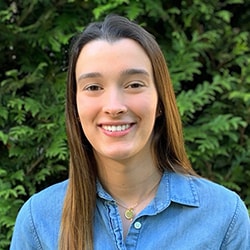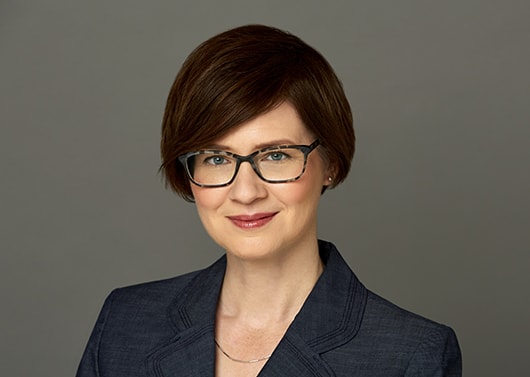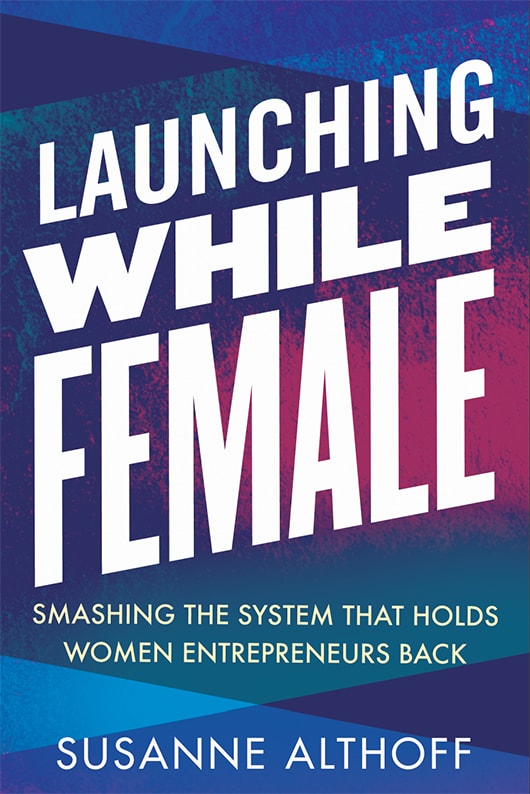Alumni author examines gender gap in entrepreneurship
A Q&A with author Susanne Althoff, ’92, whose new book, Launching While Female, calls for closing the gender gap in the startup world
 Kate McLane, ’22
Kate McLane, ’22

Susanne Althoff, who is originally from Severna Park, Md., is a journalist and a professor at Emerson College. She received a Bachelor of Arts in Writing and Communication from Loyola in 1992 and went on to earn her Master of Science in Journalism from Columbia University in 1993.
Drawn to a liberal arts education, Althoff says Loyola seemed like the perfect fit for her, a Baltimore native. As a student, she was involved with the Greyhound newspaper, where she learned how to interview people on the street and the critical skill of meeting deadlines. Writing for the Greyhound, she says, helped her find her passion for journalism and inspired her to attend graduate school.
After completing her master’s at Columbia, Althoff returned to Maryland and worked at Annapolis Magazine and Chesapeake Bay Magazine. She next moved to Boston, where she worked for several magazines before accepting a position at the Boston Globe. Althoff worked for the Globe’s Sunday Magazine for 12 years, serving as editor-in-chief for six of those years. While at the Globe, Althoff began teaching at Tufts University, where she fell in love with being an educator. In fall 2015 she accepted a tenure-track position at Emerson College.
Loyola magazine recently spoke with Althoff about her new book, Launching While Female: Smashing the System that Holds Women Entrepreneurs Back, which was released in October 2020. Launching While Female examines the obstacles that female and non-binary entrepreneurs—especially people of color—face when launching, funding, and developing startup companies, since the startup world was largely engineered by and for white men.
What inspired you to write this book?
While working at the Boston Globe, I participated in several product launches and developed a passion for the entrepreneurial process: identifying an unmet need, researching the potential market, all of it. When I became a professor, I started mentoring women who were starting their own companies. They told me stories of investors and other people not taking them seriously, belittling their ideas. I knew about the statistics that show a gender gap in entrepreneurship. Women launch fewer companies than men; their companies overall make less revenue and employ fewer people. And I knew that women-founded startups receive less than 3% of venture capital investment in this country, and that women who are Black or Latinx receive even less.
 Learn more about Launching While Female, by Susanne Althoff.
Learn more about Launching While Female, by Susanne Althoff.
Like so many other people, I found this data frustrating. Yet I knew that entrepreneurs who are women and non-binary still create successful companies. I wanted to use my journalism skills to collect the stories of women and non-binary entrepreneurs, and to hear the things they wished were different about the entrepreneurial space and what could ease the gender gap.
What was something you learned at Loyola that you have carried throughout your career?
My writing and journalism classes at Loyola (and at Emerson) taught me the importance of deep research and to do more reporting than you think you’ll need. Andrew Ciofalo, Ph.D., a former professor of communication at Loyola, encouraged students to take as many notes and fill as many notebooks as possible, so you have enough research to complete each article. Research and note taking are important steps to adequately complete each article, to share stories that are engaging and inspiring.
While at Loyola, I created valuable and long-lasting relationships with my professors. The professors at Loyola are one-of-a kind. They are dedicated to helping their students succeed at the University—and beyond.
In your professional career, have you ever faced any hurdles?
By the time I left journalism, I shared experiences with some of the young women I interviewed (for my book). I have experienced being the only woman in a boardroom, and being one of few women who is the top editor of a magazine. I understand what it’s like to move in spaces where not many have looked like you or had similar experiences as you.
Having role models and mentors was extremely important in facing these hurdles. As a professor, I hope I can be someone that my students can come to with any question or when they need advice.
What advice would you share with a current Loyola student?
Participate in extracurricular activities. The Greyhound was influential in helping me find my desired career path.
Beyond that, read widely, talk to everyone you can, and listen. Regardless of which industry you want to work in, I would encourage students to view changes and upheaval in that industry as opportunities to try new things and be innovative. Don't accept things as they are or as they've always been.